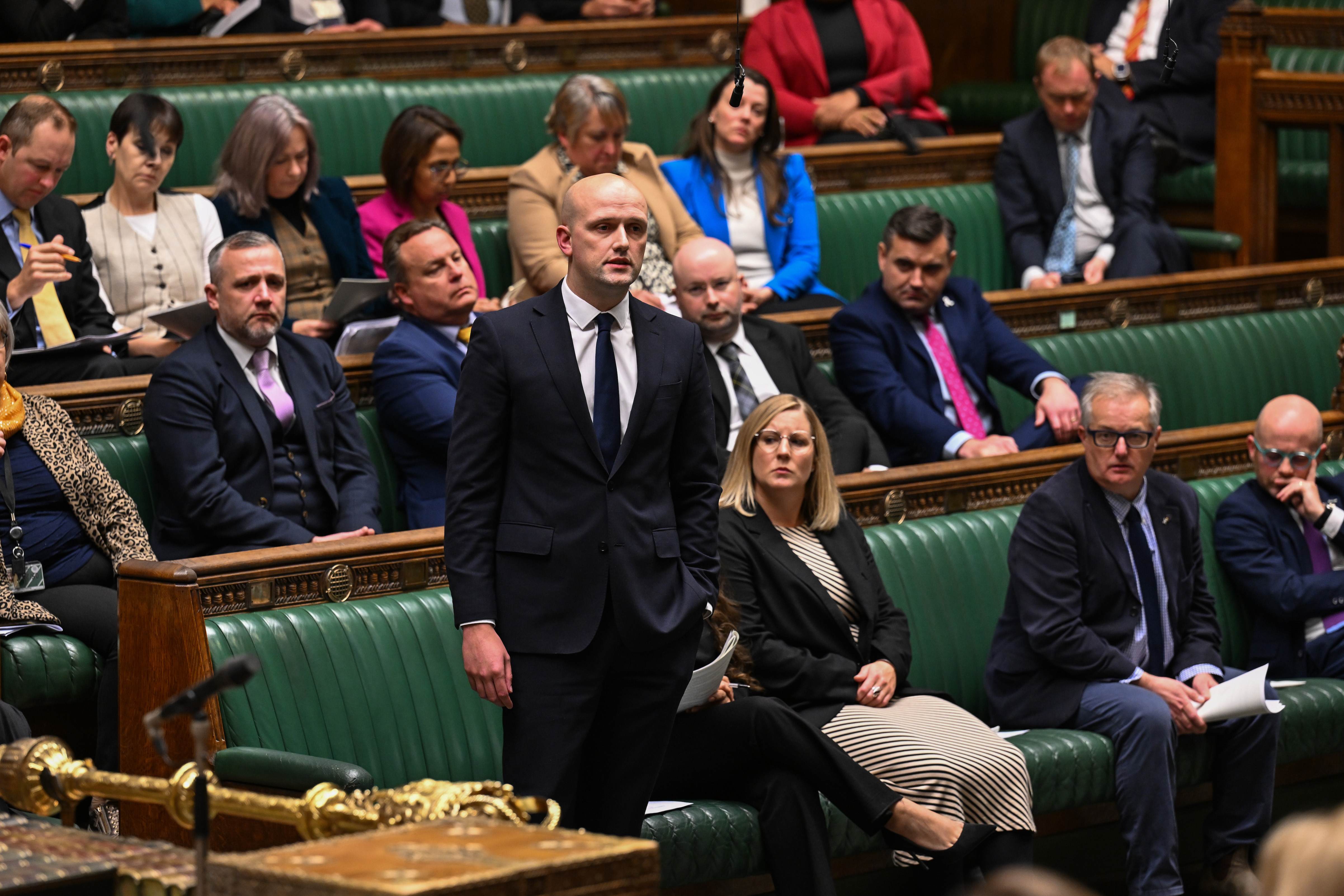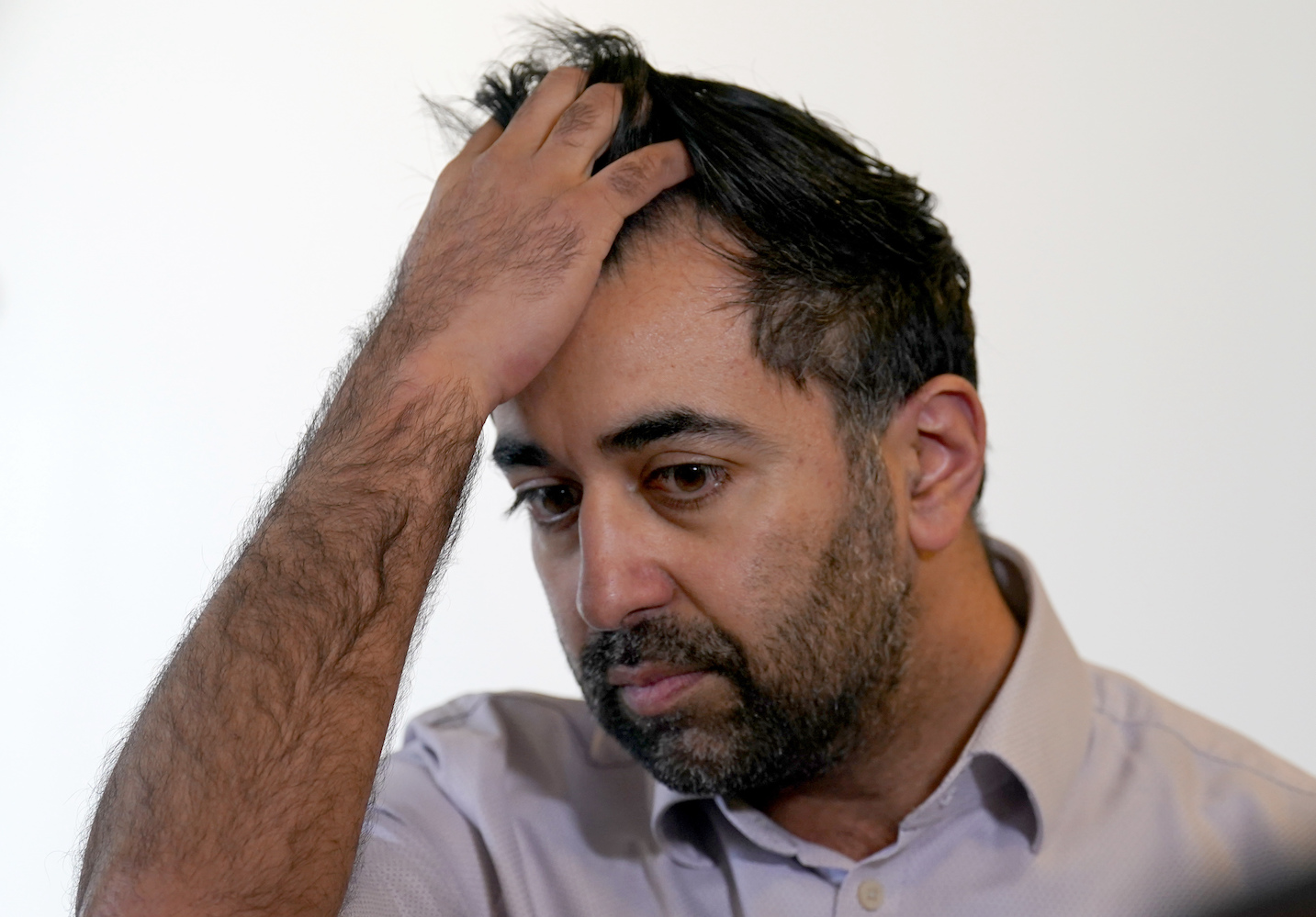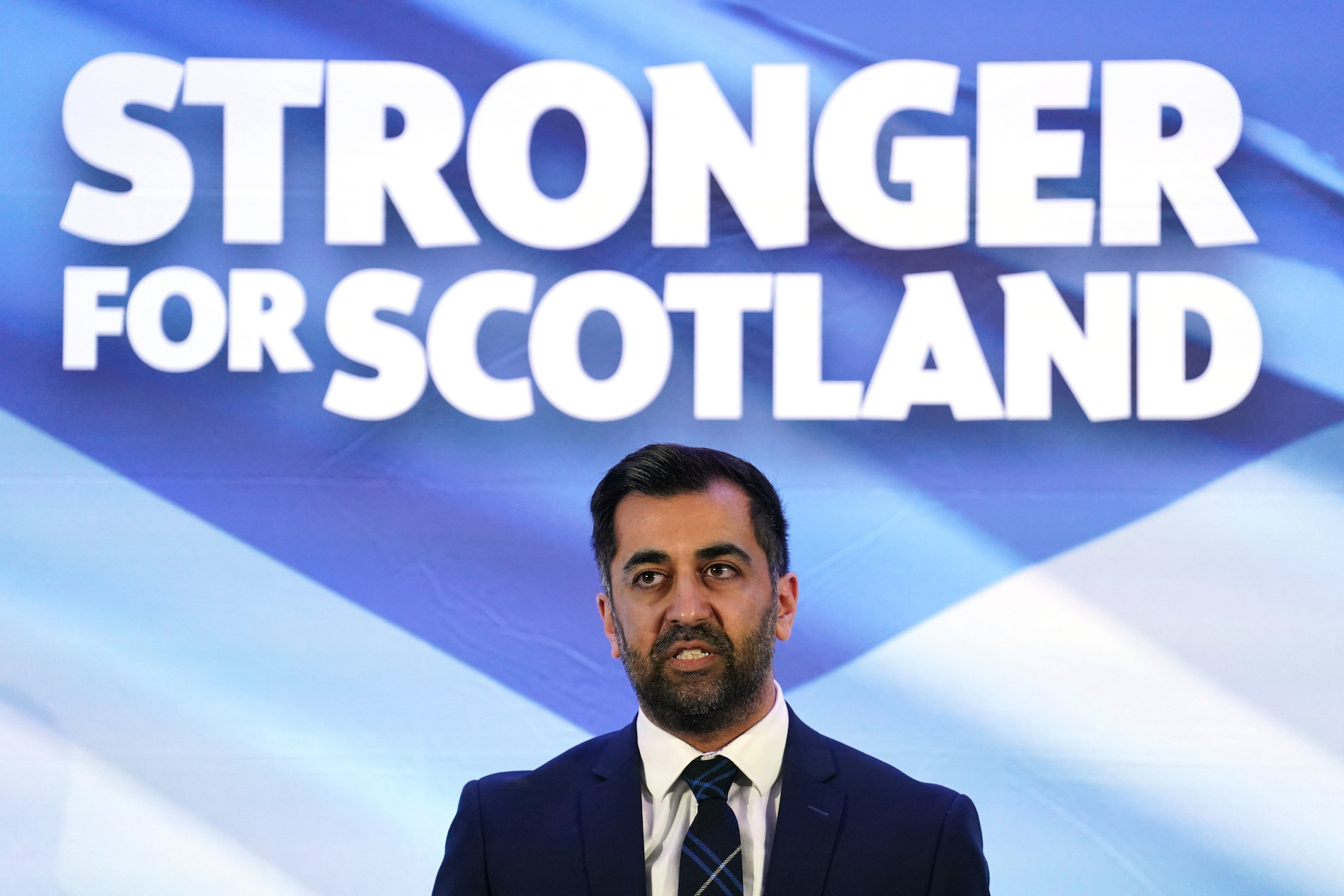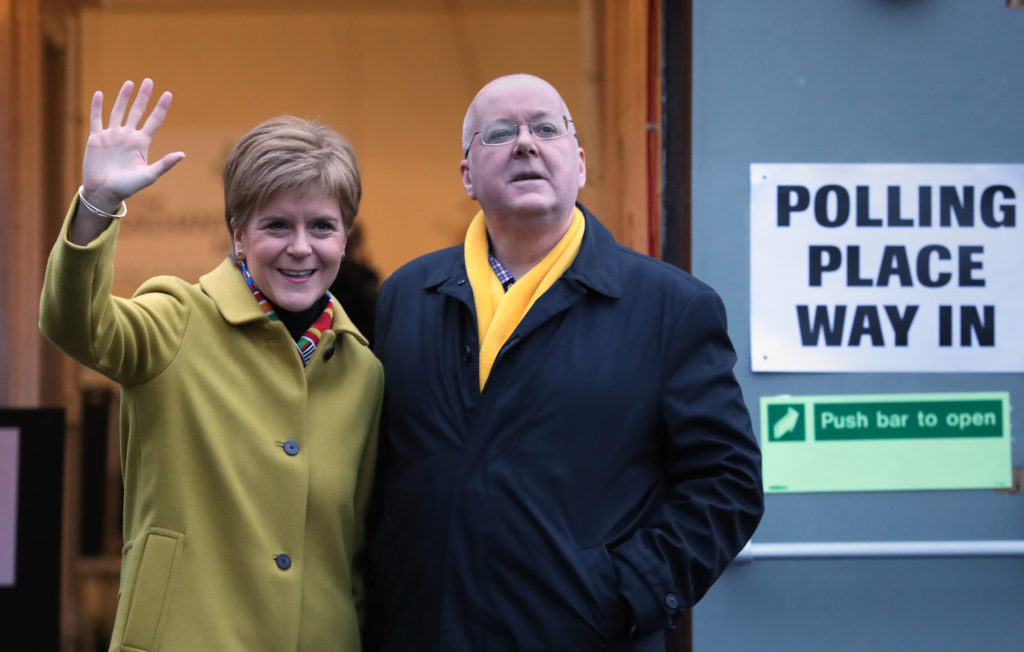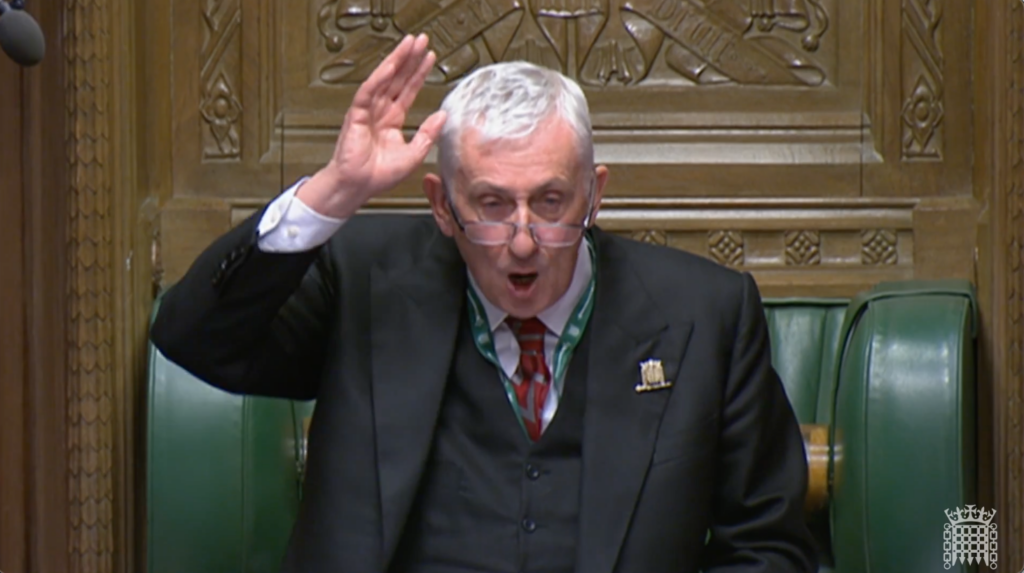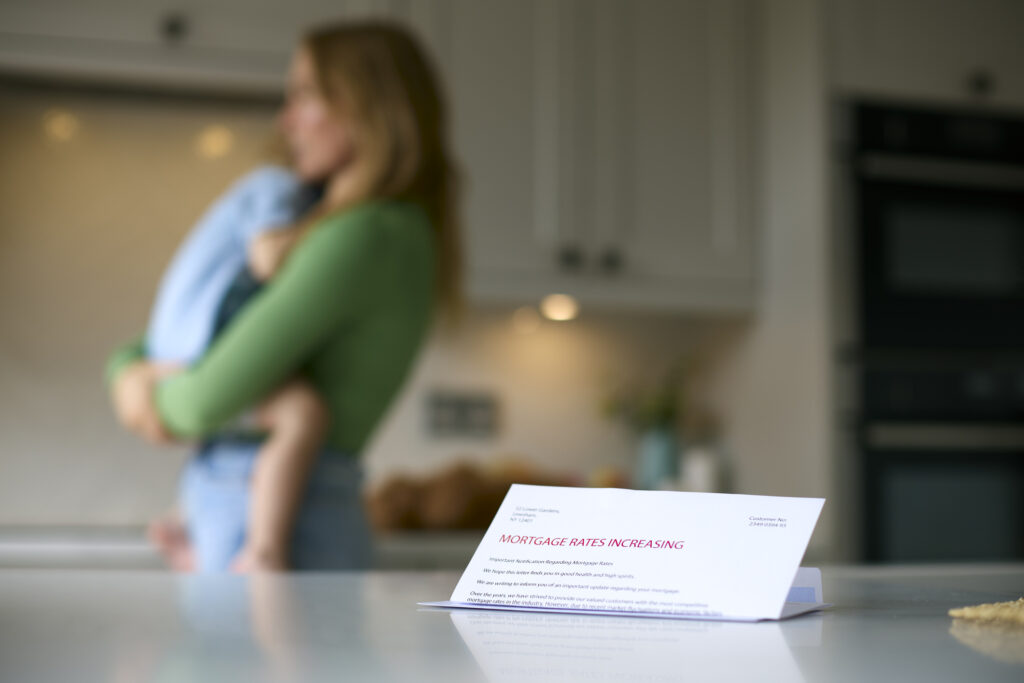The Scottish National Party (also known as the SNP, Pàrtaidh Nàiseanta na h-Alba, or Scottis Naitional Pairtie), is a nationalist party that sits on the left of the political spectrum.
It is currently the largest party in Scotland and has been in government in the Scottish Parliament continuously since 2007.
What does the Scottish Nationalist Party stand for?
The SNP stands for inclusive civic nationalism, advocating for people of any background and ethnicity who identify with Scottish culture and democratic values and wish to live and work in Scotland. It encourages immigration and has recently supported the resettlement of Syrian refugees in Scotland.
The SNP campaigns for Scottish independence from the rest of the UK.
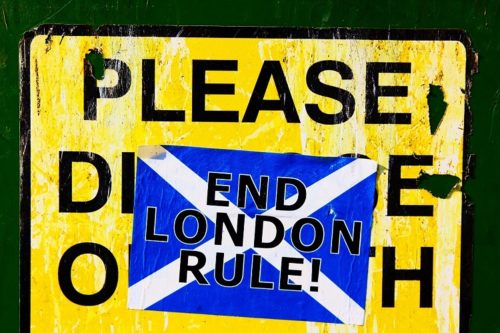
45% of voters supported Scottish Independence in the 2014 referendum
The SNP believes in divesting from nuclear energy and investing in green alternatives, such as wind power. It aims to decrease Scotland’s carbon dioxide emissions by 3% every year. The SNP also wishes to increase the use of organic and sustainably sourced materials in production.
The SNP manifesto has regularly set out plans to replace the Council Tax with a Local Income Tax, and within the Scottish Parliament, it has increased income tax for higher rate taxpayers.
It has introduced free childcare for young children, free school meals for kids in the first three years of school and eliminated university fees for local students. In 2020, the Scottish government led by the SNP pledged to make menstrual hygiene products free for all.
The SNP has enshrined its support for the LGBTQ+ community into law, with its current aim being to revise the official gender recognition process to make it easier for transgender individuals. It has also supported gender equality, particularly through the introduction of measures to address gender imbalance in politics.
The SNP opposed the Iraq War but has recently shifted to supporting increased international cooperation, particularly with the US and other NATO allies. It was strongly opposed to Britain’s exit from the European Union.
The party supports the establishment of a written constitution, as well as electoral reform that would make both Houses in Westminster elected by proportional representation. The SNP believes that less public money should be spent on the Royal Family, but unlike Plaid Cymru, does not support the abolition of the monarchy.
Gradualists and Fundamentalists
There is a difference of opinion within the SNP on the best road to independence, the ultimate aim of the party. Both wings agree that independence must be won through a constitutional process as opposed to declared unilaterally.
Gradualists argue that the SNP must build up to an Independent Scotland through the gradual devolvement of powers from Westminster to the Scottish Parliament, claiming this will increase the public’s readiness for an eventual total break with the rest of the UK.
Fundamentalists, on the other hand, want the SNP to move faster. They want the party to give Scottish independence a more central role in the party’s campaigns.
Since 2007 – The rise and rise of the Scottish National Party
In 2007 elections to the Scottish Parliament, the SNP won 32.9% of the vote, making it the largest party in the Scottish Parliament. The SNP went on to form a minority government with leader Alex Salmond becoming First Minister. Despite this breakthrough at Holyrood, in the 2010 General Election, the SNP only won six seats at Westminster, far short of the 20-seat goal Salmond had set.
The emergence of a Conservative-Liberal Democrat coalition at Westminster in 2010, then dovetailed with a further increase in support for the SNP in the 2011 Holyrood elections. The SNP made significant gains from both Scottish Labour and the Scottish Liberal Democrats, and the party gained 23 seats with swings of around 12%.
The 2011 elections gave the SNP an overall majority in the Scottish Parliament, providing the party with a mandate for its call for a Scottish Independence referendum.
A referendum on Scottish Independence was held on 18th of September 2014, and although the proposal for Scottish Independence was defeated, a significant minority (45%) had supported the SNP’s Yes campaign.
Alex Salmond subsequently resigned and was replaced as SNP Leader by Nicola Sturgeon.
In the 2015 General Election support for the Scottish National Party continued to rise, and the party won 50% of the vote in Scotland, winning 56 out of Scotland’s 59 seats at Westminster.
Although the party lost 21 of those seats in the 2017 General Election, it managed to climb back to the 48 seat mark in the 2019 General Election.
In the 2021 Scottish Parliament elections, the SNP remained the dominant party winning 64 of the 129 seats available at Holyrood, and some 47.7% of the constituency vote.
The Origins of the SNP
The Scottish National Party was officially founded in 1934, with the amalgamation of two parties that called for devolution of power: the National Party of Scotland and the Scottish Party.
The SNP won its first Westminster seat in a by election in 1945, although the winning SNP MP refused to take up his seat at Westminster, and was subsequently defeated in that year’s General Election.
In 1967, Winnie Ewing won the constituency of Hamilton from the Labour Party in a Parliamentary by-election, and the party’s fortunes subsequently developed through the 1970s. The discovery of oil in the North Sea, and the associated SNP campaign ‘It’s Scotland’s Oil’, saw the party gain 30.4% of the Scottish vote in 1974 General Election, leaving the party with 11 MPs at Westminster.
However, in 1979 SNP representation in the Commons shrunk to two seats following a decline in support. Throughout the 1980s, 1990s, and the early years of the Twenty First Century, the SNP fluctuated between three and six MPs at Westminster.
Scottish National Party Voters
The Scottish National Party polls relatively evenly across all social classes, and between men and women. In the 2019 General Election, a YouGov survey showed how the SNP attracts its highest level of support from those aged between 25 and 49.
Scottish National Party Membership
At the start of 2019, the Scottish National Party had 125,534 members.
Scottish National Party Funding
The SNP is funded though a combination of public grants, donations, and membership fees.
In the year 2015-16, the Party received a Policy Development Grant of £153,676, according to the Electoral Commission. The SNP also receives Short Money allocation, which according to the House of Commons’ Department of HR and Change, amounted to £187,294 in the year 2014-15.
SNP standard membership costs £12 per year, with a £5 level year for seniors, the unemployed, those in part-time employment and students, and £2 per year for youth members. Membership costs £36 per year for overseas members, with lifelong membership available for £625.
Scottish National Party Organisation
The SNP Conference is where the party’s policy direction is assessed and determined, the NEC is elected, and other important decisions are taken.
The annual National Conference is a meeting of the NEC, Members of Parliament, Members of the Scottish Parliament, as well as representatives from the Constituency Associations, local councillors and delegates from one of the following groups: Young Scots for Independence, SNP Students, SNP Trade Union Group and the Association of Nationalist Councillors.
The National Executive Committee (NEC) represents the party’s leadership, as well as elected representatives of the party’s member groups.
The party’s National Council is responsible for making decisions between annual Conferences.
Scottish National Party Leader
The last leadership election, held in 2014, saw then-deputy leader Nicola Sturgeon elected unopposed as the new SNP Leader.
In leadership elections for the Scottish National Party, when there are multiple candidates running, as happened in 2004, a one-person-one-vote postal system among members is used.
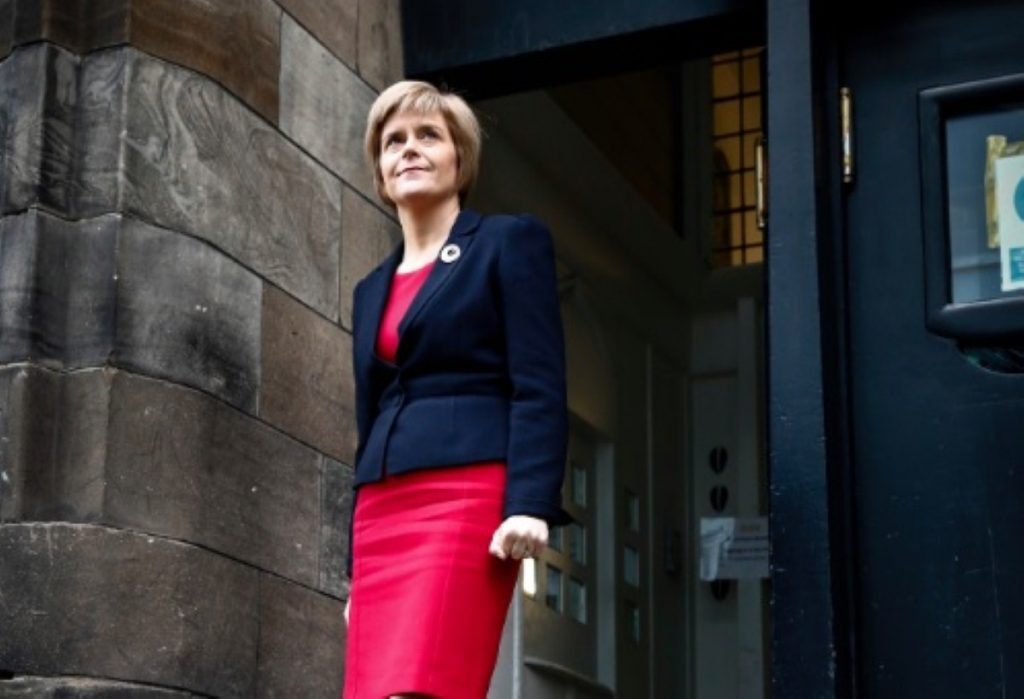
Polls showed that First Minister, Nicola Sturgeon was regarded as having performed well during the
Contact Details
Website: www.snp.org/
Twitter: @theSNP









